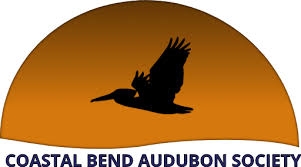Field Trip Description: Rose Hill Cemetery, Tule Lake Observation Platform, and Fulton Loop Corrido, all in Corpus Christi.
Registration required one week in advance (by April 19, 2025). Minimum for the trip is 3 participants. NOTE THAT CURRENTLY FIELD TRIPS ARE OPEN TO ALL INTERESTED PARTIES.
NOTIFY OUR FIELD TRIP LEADER, GENE BLACKLOCK, THAT YOU PLAN TO GO ON THIS FIELD TRIP. TEXT GENE AT 361-558-1829 AND PROVIDE YOUR NAME(S) AND CELL PHONE NUMBER(S).
Field Trip Group Meets: Field Trip Group will meet at tthe entrance to Rose Hill Cemetery located at the intersection of Palm Street and Comanche St (2731 Comanche St, Corpus Christi, 78408); break at nearby McDonalds (4510 Leopard). Please use a restroom prior to the start of the trip as no restrooms will be immediately available.
Please do not forget water, hat, insect repellent and snacks.
Reminder: Please dress appropriately, suggest baggy cryptic clothing (never white or black, never bright colors like red), hat, insect repellent, comfortable shoes (shoes preferably with ankle support), a light rain jacket (optional), drinking water and snacks. Recommend binoculars and field guide.
Bathroom Availability: Note that there is not a public restroom at the meeting place, so participants are encouraged to stop at a public restroom before the start of the trip.
Trip Description: moderate, some walking.
Equipment: Beginners, please have a field guide, binoculars or scopes if it is desirable.
Download seasonal Coastal Bend Bird checklists from Coastal Bend Audubon Society's webpage.
Habitat: At Rose Hill Cemetery, the habitat is over 30 acres of hardwood trees. Tule Lake is a tidal lake on Up River Road, located immediately northwest of Southern Minerals Road, Corpus Christi. (Tule Lake Physical Address 7201-7203 7201 Up River Rd, Corpus Christi, TX 78409) Take Exit 6 off 1-37 and follow Southern Minerals Road (51) north toward the river. Turn left on Up River Road and proceed to the overlook.
Birds of special interest: Neotropical migrants, such as Black-billed Cuckoo (rare), vireos, thrushes, wood warblers (especially Townsend's, Hermit, Black-throated Blue and Cape May), tanagers (especially Hepatic and Western, and finches (especially Varied and Lazuli Buntings and Black-headed Grosbeak).
CBAS field trips are an extension of a classroom learning experience, so please bring binoculars & field guide references (books, phone apps). Questions are encouraged and are welcomed.
Field trip summary will be reported on eBird, Facebook, Twitter and CBAS online.

